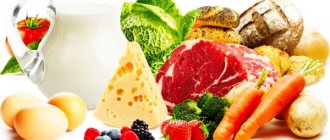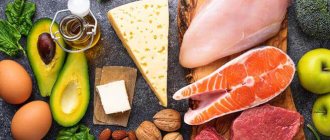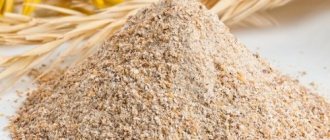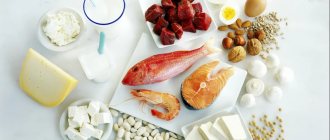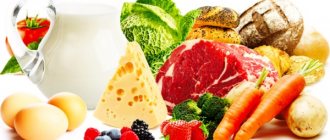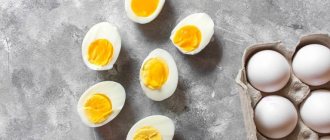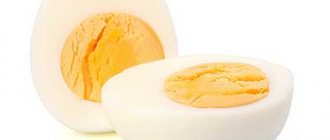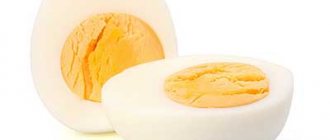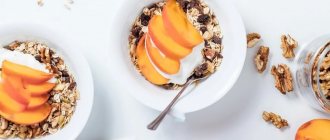What happens from a lack of protein in the human body?
An adult man needs 55 g of protein food per day. The recommended norm for women is 45 g. With active sports, the need increases. If the body regularly experiences protein deficiency, serious disruptions in the functioning of internal organs and systems begin.
Among them:
- anemia;
- decreased immunity;
- apathy;
- slowing down of thinking functions;
- loss of muscle mass;
- deterioration in the quality of skin, hair, nails.
With a lack of protein, a person feels constant fatigue and dizziness, and suffers from insomnia. Hormonal levels are disrupted, which causes nervous system disorders - irritability, aggression.
Fruits and sweets
In addition to the amazing variety in appearance, smell and taste (and when it comes to delicious food, fruits are probably the first to come to mind), fruits are distinguished by the fact that they contain a large number of different vitamins and minerals, carbohydrates and fiber. Their usefulness is already known, so let’s pay attention to some features of their use. It will be beneficial if you eat the right combinations of fruits. So, apples contain a lot of fiber, but little vitamin C. But if you add an orange and strawberries to them, then your daily dose of vitamin C is provided. It’s no wonder that fruit salads are so popular these days. But a distinctive feature of fruits is that they can be consumed each as a separate dish. It is recommended to eat fruits for breakfast; they are also the best way to snack. By the way, you need to remember that fruit juices are also food (very tasty), and do not forget to drink water.
A separate topic is dried fruits. Dried fruits are well suited for long-term storage and have a higher nutrient content per unit weight. Another pleasant feature of fruits for most people is that they are used to make a large number of different sweets: preserves, jams, candied fruits, Turkish delight and others. And in themselves they serve as a delicacy for many. And it seems that it was fruits that served as the starting point for the emergence of such a category of dishes as dessert.
You can also eat many of the sweets we are used to. When choosing, pay attention only to the gelatin content. Gelatin is obtained by boiling the bones and tendons of animals, that is, it is not a vegetarian product at all. Look for candies and other tasty treats without the use of thickeners or with plant equivalents - these are Agar-Agar and Pectin.
Already at this stage, we can say that a vegetarian diet provides many opportunities for organizing nutritious nutrition, and the harm of vegetarianism is greatly exaggerated; but this is only part of the components of a vegetarian diet.
How can you replace animal protein, and where is the best place to get it for a vegetarian?
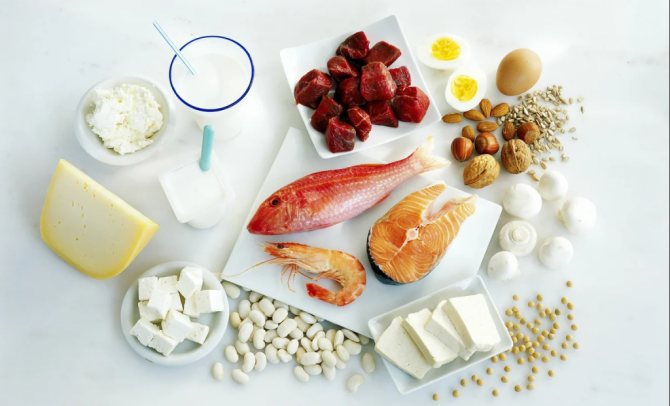
Refusal to eat meat, fish and dairy products is not at all associated with deterioration in health. Many grains, beans and vegetables are rich in proteins.
Nutritionists offer the TOP 12 best sources of plant protein for vegetarians:
- Tofu
- Lentils
- Greek yogurt
- Eggs
- Nuts and seeds
- Brown rice
- Beans
- Cashew
- Tempe
- Quinoa
- Buckwheat
- Broccoli
Tofu
Bean curd is a universal protein diet for vegetarians. It's suitable for everything from casseroles to dessert cocktails. It enriches the body not only with protein, but also with calcium, which is necessary for strengthening bones. Tofu satisfies hunger well and helps keep you feeling full for a long time.
Lentils
Protein is especially important for vegetarian athletes, since physical activity requires more energy. Lentils provide the human body with a large amount of protein and 9 essential amino acids. The grains of this legume are also rich in other elements that are difficult to obtain without meat - iron, copper, B vitamins. Lentil soups and porridges are recommended to be consumed when gaining muscle mass.
Greek yogurt
Many vegetarians accept the consumption of dairy products. The healthiest of them is Greek yogurt, which is highly nutritious and thick. It is an excellent source of easily digestible protein and Omega-3 fatty acids, essential for heart health.
Eggs
Non-strict vegetarians are allowed to eat eggs. An inexpensive and low-calorie product can complement the menu 2-3 times a week. In addition to pure protein, eggs supply the body with calcium and vitamin D.
Nuts and seeds
This is a filling and healthy snack, as well as a good addition to vegetarian salads and vegetable stews. Nuts and seeds contain from 2 to 5 g of protein for every 100 g. Pumpkin seeds, Brazil nuts and almonds are the healthiest for a vegetarian diet - in addition to a significant amount of protein, they contain polyunsaturated fatty acids.
Brown rice
The grains of this cereal are not polished, therefore they retain the plant germ and shell. Due to this, the protein content is higher than in white rice. Brown rice contains substances that are difficult to obtain from food without eating meat - vitamins B, K, calcium and iron. By using grain in their diet, vegetarians eliminate the risk of developing anemia and chronic fatigue.
Benefits of Plant Protein
Among the advantages of plant protein over animal protein, the following should be highlighted:
- increase in lean body mass, including in older people;
- a significant reduction in health risks from avoiding the increase in blood concentrations of saturated fats inherent in diets with a high content of animal protein;
- increasing muscle strength of the lower extremities;
- improving physical performance in malnourished people and people weakened after illness;
- increasing bone density.
In addition, it should also be noted that a global increase in the share of production of products with plant-based proteins and a decrease in meat production clearly reduces the burden on land and water resources, and also significantly reduces greenhouse gas emissions associated with livestock farming.
How can you replace animal protein, and where is the best place to get it for a vegan?
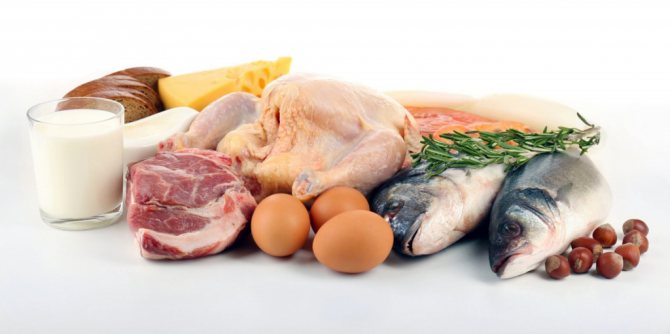
Adherents of the vegan philosophy reject the use of any food of animal origin. Products obtained through the exploitation of living beings are also excluded - eggs, milk, caviar and honey. But the vegan list of protein-rich foods includes quite a few items, from soy dishes to vegetables.
Beans
Thanks to its high protein content, it makes any dish satisfying. Bean fiber improves digestion and lowers cholesterol levels. The product is universal for cooking - soups, stews, and baked goods are prepared from it. Any variety will be useful in a vegan diet - white, red, yellow, but black beans are especially high in protein.
Cashew
The tasty nut is rich in vegetable protein and unsaturated fatty acids - Omega-3, Omega-6, Omega-9. Vegan cashew butter is a healthy alternative to butter and cheese for sandwiches. Nuts can be added to cereals, salads, and desserts. For vegan athletes, they serve as a convenient snack between workouts.
Tempe
This soy product has a texture similar to tofu, but has twice the protein. In addition, tempeh contains bacteria that are beneficial to the digestive tract. The product is rich in substances that actively remove toxins from the body. Tempeh can be fried in vegetable oil, baked with vegetables, or used as an addition to salads and vegan pasta.
Quinoa
South American cereal grains consist of 20% protein. In this regard, the product is superior to all grain crops, including rice and buckwheat. Vegetable protein quinoa is classified as “complete”, that is, containing 21 amino acids at once. Healthy cereals find many uses in a vegan menu - porridges, vegetable cutlets, soups.
Buckwheat
In terms of protein content, it is second only to “overseas” cereals - quinoa and amaranth. Buckwheat supplies the body with iron, B vitamins and rutin, necessary for vascular health. Buckwheat plant fibers perfectly cleanse the intestines of toxins.
Broccoli
The green vegetable contains a lot of protein, equal in value to the protein of a chicken egg. It contains the amino acids lysine and isoleucine, which are important for supporting the immune system and energy tone of the body. Thanks to its abundance of B vitamins, broccoli supports the health of the nervous system, hair and skin.
Delicious, healthy and without meat
So, let's consider what opportunities there are to meet the body's needs for energy and “building” materials with the help of products that do not require the killing of animals. In addition, to be healthy, food must also be tasty, and the diet must be quite varied. Which is also part of our understanding of the good life. And vegetarianism can bring its own additional advantages here, due to the inclusion in the diet of a variety of products that the traditional cuisine of our region (and for it meat-eating is still largely traditional, but not only) might not pay such close attention. Although a significant part of these products are quite common and are present on the table not only of vegetarians. In any case, the vegetarian products that will be discussed are quite easy to find on store shelves or in the market.
Summary table of vegetable protein in products and its quality
In order for the body to receive daily protein requirements, you need to use several plant sources daily.
Vegetables, nuts and beans go well together. Soy products can be combined with cereals, pastas and vegetables. With legumes, they are less easily absorbed by the body. The table shows products from the TOP 12 sources of vegetable protein.
| Product | Protein volume (in grams per 100 g) |
| Tofu | 12 |
| Lentils | 9 |
| Greek yogurt | 5 |
| Chicken eggs | 7 |
| Nuts and seeds | 3-5 |
| Brown rice | 7,5 |
| Beans | 7 |
| Cashew | 3 |
| Tempe | 20 |
| Quinoa | 16 |
| Buckwheat | 13 |
| Broccoli | 3 |
When creating a vegetarian and vegan diet, it is important to calculate not only the quantity, but also the quality of protein. It depends on the digestibility and content of essential amino acids - substances that are not produced in the body. The quality of plant proteins is always lower than animal proteins, since vegetables, beans and grains contain fewer amino acids.
The richest amino acid composition of animal products is eggs and yogurt. Tofu, tempeh, buckwheat and quinoa also have high protein quality.
The need for a balanced diet
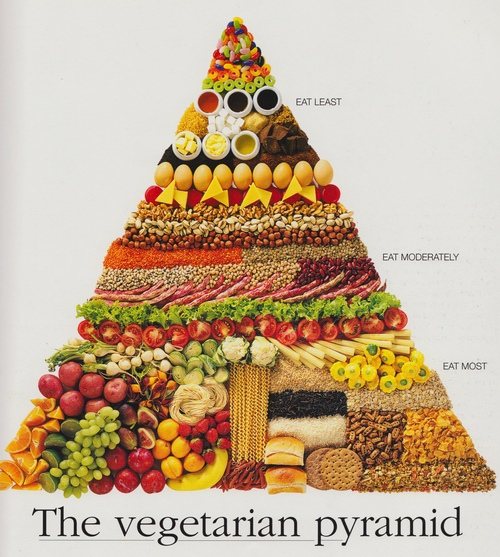
When considering what vegetarianism is, what the pros and cons are, what the pros and cons of vegetarianism are, we somehow come to the question of nutritional balance. The most common mistake made by those who switch to a vegetarian diet is eating their previous diet of foods, minus the meat.
For the body, this can result in a lack of a number of important components, which it will not remember. This is basically the basis of the argumentation of those who like to talk about the dangers of vegetarianism. Well, the lack of essential vitamins, minerals and other elements is indeed dangerous to health, as is their excess. The right idea here is to take care not only of excluding meat from the menu. It is necessary to include in it such products that will ensure the presence of all necessary nutrients in the diet, and in the right quantity, no more and no less.
Vitamins, vitamin complexes, food supplements
When discussing what the pros and cons of vegetarianism may be and the list of products used in a vegetarian diet, one cannot help but touch on such topics as healthy smoothies, vitamin complexes and nutritional supplements, from which special vitamin cocktails are made. By the way, their use for organizing proper and nutritious nutrition is recommended for everyone, not only vegetarians. For the latter, you can select special sets that can certainly nullify all theses about the dangers of vegetarianism. But this topic requires separate consideration.
We hope that you are convinced that the quantity and properties of vegetarian products are such that they make it possible to make vegetarian food tasty and nutritious, no less than a meat diet. A properly composed menu will provide all the necessary components to meet the needs of the body at any age. At the same time, not all meat eaters can boast of a varied diet and a balanced intake of essential substances.
Introductory part
Protein is essential for maintaining muscle and bone mass, the immune system and preventing fatigue.
People unfamiliar with vegan nutrition often assume that it is extremely difficult to meet protein needs on a purely plant-based diet. If they even believe there is protein in plant foods. On the other hand, after reading various literature on this topic, most “educated” vegans take the diametrically opposite point of view, according to which a person cannot get less protein on a vegan diet.
The truth is somewhere in the middle. If a person eats several servings of legumes per day, it will be easy to get enough protein on a vegan diet. However, there are probably many vegans who do not get enough protein for optimal health. Vegans who don't eat legumes may have a particularly difficult time getting enough of the amino acid lysine.
Vegans who do not eat enough calories to maintain their weight should also pay special attention to their protein intake.
Salt, spices and seasonings
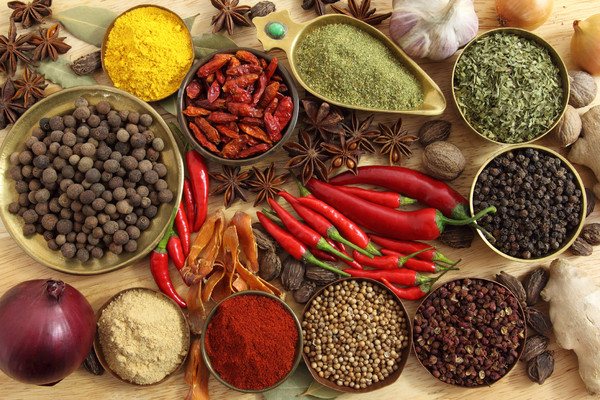
They not only add numerous shades of aromas and tastes to food, but, when used correctly, help cure many diseases.
The undoubted benefit of vegetarianism is that it naturally limits the use of salt (one of the main reasons for its inclusion in the diet is to improve the taste of meat). To improve the taste in vegetarian cuisine, spices and herbs are used more. The bark, roots and seeds of some plants are used as spices, often used in crushed form, as well as in powder form. A skillful selection of spices brings out additional flavor nuances of familiar products and gives any dish an endless variety of flavors. A special art in using spices is the ability to make mixtures. In Indian cuisine it's called masala, which means just that - a mixture of spices. Some mixtures can be prepared for future use and can be stored for several weeks or months.
The most common types of spices are pepper, ginger, cinnamon, turmeric, fennel, coriander (cilantro), cardamom, cumin, vanilla, anise, oregano, basil, marjoram, barberry, mustard, nutmeg, curry and cloves. All of them also have medicinal properties; Ayurveda, in particular, teaches their use for medicinal purposes.
